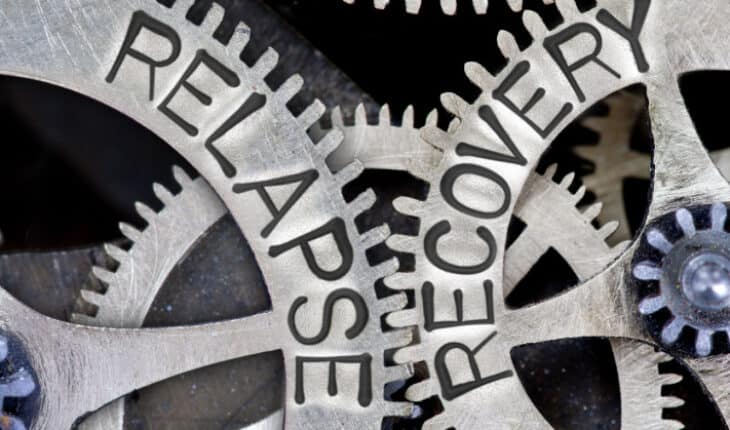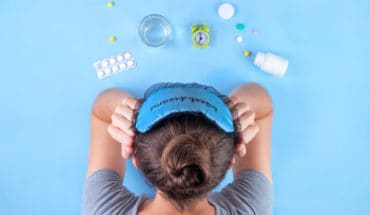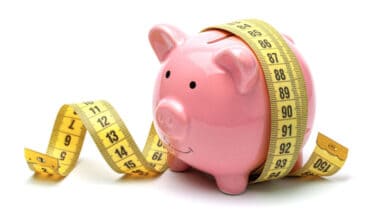Why Do People Relapse? Understanding and Overcoming Relapse in Substance Abuse Recovery: Embarking on the journey of addiction recovery is a tough, but worthwhile goal. However, it is not uncommon for you to face setbacks in the form of relapse during your recovery journey.
In this blog post, we will explore the reasons why people relapse in drug addiction, explore the various stages of relapse, and discuss effective strategies for preventing relapse. Understanding these aspects is crucial for you, your family members, and addiction treatment programs to help you best achieve recovery.
Why Relapse Occurs During Drug Abuse Recovery
The biggest stumbling block people face on the path of recovery is when they slip up. Knowing why relapse happens is critical for those working on getting clean and those helping them out. Let’s dive into the four big causes of going back to drugs during recovery – how mental health problems, ineffective ways of dealing with stress or emotions, intense withdrawal symptoms, and not setting solid limits work together to trip people up.
Mental Health Issues Combined With Substance Addiction
Mental health challenges often coexist with substance abuse. Attending a dual diagnosis treatment program, which addresses both mental health issues and substance use disorder, can significantly increase the effectiveness of your recovery efforts.
Your dual diagnosis treatment team understands how substance use disorders are a chronic disease and will work to give you the tools you need to successfully tackle recovery and lay the groundwork for a sober life.
Poor Coping Skills
Many individuals turn to drugs or alcohol as a coping strategy to deal with negative emotions, stress, conflict in relationships, and peer pressure. As the Marlatt and Gordon model establishes, the seeds of relapse are planted in a high-risk scenario and nurtured by unhealthy coping skills.
If you are facing elevated stress levels, coupled with poor coping skills, you are at a much greater risk for addiction relapse. Negative emotions like anger, depression, anxiety, and boredom can also increase your risk for returning to drug and alcohol use for comfort.
Simply put, without effective coping skills, relapse rates drastically increase.
Uncomfortable Withdrawal Symptoms During Detox
The physical discomfort experienced during withdrawal can be overwhelming, leading your to turn to substance use to alleviate these symptoms. All will to stay sober can easily vanish in the face of intense cravings and physical pain, even if you are fully aware of the consequences.
The vulnerability during the withdrawal phase, coupled with the desire to avoid physical and mental distress, underscores the importance of comprehensive support and coping strategies to navigate this critical stage of the recovery journey successfully.
Lack of Healthy Boundaries
A strong contributor to relapse is your social environment- the people you surround yourself with. Having friends or family members who engage in drug abuse and significantly challenge your recovery and your resolve to stay sober. Even just being around them can trigger intense cravings, heightening your risk of relapse.
Establishing and maintaining well-defined boundaries is crucial for preventing relapse. Without clear boundaries, individuals may find themselves in situations that trigger drug use.
The Stages of A Relapse
A relapse can happen in many ways. What is commonly seen as a “traditional” relapse happens when you consciously decide to consume alcohol or use drugs. This might involve choosing to smoke marijuana to reduce stress after a substantial period of sobriety or having a glass of wine with friends, believing you can handle it without spiraling into excessive use.
On the flip side, a “freelapse” is the informal term for an accidental relapse, which occurs when you unintentionally use drugs or alcohol.
This could occur if you mistakenly consume alcohol, thinking it is a non-alcoholic drink at a party.
At times, the path toward a relapse unfolds without you even realizing it, manifesting in actions taken weeks or months before using drugs or alcohol. Specific thoughts, emotions, and events can act as triggers, sparking cravings and urges for drug use. If not effectively addressed, these triggers can significantly elevate the risk of relapse, which is why it is extremely important to proactively manage these risk factors in the recovery process.
Emotional Relapse Stage
The onset of the emotional relapse stage before actually picking up a drug or sipping a drink. In this phase, you may find yourself struggling to manage your negative emotions in a healthy manner. Rather than addressing your feelings openly, there might be a tendency to bottle them up, withdraw from social interactions, deny the existence of problems, and overlook self-care.
Although the thought of drug and alcohol use may not be at the forefront of your mind during this stage, the avoidance of confronting emotional pain and challenging situations sets the stage for potential relapse in the future. Recognizing and addressing these early signs becomes crucial in preventing future relapse and fostering a healthier recovery journey.
Mental Relapse Stage
In the mental relapse phase, you may struggle with conflicting emotions surrounding sobriety. Within this stage, there is an internal struggle: one side strives to remain sober, while the other wrestles with cravings, harboring secret thoughts about a potential relapse.
Mental relapse goes beyond mere internal conflict; it includes romanticizing past drug use, downplaying the negative feelings and consequences, and actively seeking opportunities for using drugs or alcohol. This intricate mental struggle highlights the delicate balance you have to maintain between your substance addiction and your will to recover.
Physical Relapse Stage
The physical relapse stage is where the actual addiction relapse occurs. What starts out as an initial slip, perhaps with just a few sips of a drink or or hit of a drug, can quickly escalate into a full-blown relapse, characterized by a complete loss of control over your actions and total drug dependence.
The importance of recognizing early warning signs and implementing effective strategies to prevent progression towards physical relapse in the ongoing journey of drug recovery.
What To Do If You Relapse
Whether you have relapsed before or not, knowing what to do if you slip back into the throws of drug abuse is critical for getting back on track and preventing future relapse. No relapse is insurmountable and there’s always an opportunity for recovery.
If you have experienced a relapse, quickly follow these proactive steps to minimize the negative effects of drug use and prevent further substance use.
1. Ask for help. Seeking assistance from family members, friends, and other addicts in the recovery process can significantly help you navigate the challenges of relapse. Create a sober support system and immerse yourself in it. The worst thing you can do in early recovery is suffer in silence.
2. Find support groups near you. Both traditional twelve-step support groups like Alcoholics Anonymous (AA) and Narcotics Anonymous (NA), as well as science-based alternatives like SMART Recovery, offer nonjudgmental spaces for you to discuss substance abuse relapses openly. With meetings available on a daily basis, you can quickly find a support group that’s right for you, allowing you to talk about your relapse experiences within 24 hours of it happening.
3. Avoid triggers at all costs. Being around people, places, situations, etc… that are triggering to you, in the aftermath, of a relapse can be detrimental to your recovery, and actually intensify your cravings. By putting distance between yourself and your triggers helps to create an environment ripe for addiction recovery.
4. Establish healthy boundaries. In all stages of substance abuse recovery, but especially shortly after a relapse, it’s vital to set boundaries to protect yourself from threats against your sobriety. A key component to maintaining firm personal boundaries is steering clear of people who are not completely onboard with your choice to be sober. These people will only try to pressure you back into a lifestyle of using drugs or alcohol, so surrounding yourself with your sober support system is the only way to remain sober after a relapse.
5. Prioritize your self-care. Both your mental and physical well-being should be taken care of, especially in the wake of a relapse, and is one of the key components of recovery, and it gives you a way to relieve tension and reduce stress.
6. Self-reflect about why the relapse happened. Rather than seeing a relapse as a setback, you can see it as a learning tool. Dedicate time to reflect on the circumstances leading to the relapse. Explore the events that unfolded before the relapse occurred. Did you try out any other coping mechanisms prior to resorting to substance use? Think about potential alternatives to using or drinking that you could have used.
Asking yourself these questions offers insights into what you can do differently, encouraging a constructive approach to managing challenges that arise along your path to substance use disorder recovery.
7. Come up with a relapse prevention plan. This is a guide designed to be a steadfast companion to help you maintain sobriety. It should be as detailed as possible, and easy to follow when needed.
Acting promptly after a relapse significantly increases your chances of a quick recovery with minimal negative consequences. It is important to remember that recovery is not linear or bound by time constraints. It is never too late to regain control after a relapse.
If early recovery seems too overwhelming, seek drug addiction treatment to help manage the task. Some treatment centers offer an inpatient program with medical detox and behavioral therapies to help you regain your footing and relapse prevention classes to help you assimilate back into your daily life with the help of addiction specialists.
How to Prevent Relapse After Drug Addiction Treatment
Preventing relapse in addiction recovery involves a complex approach that addresses both the physical and psychological aspects of your substance use.
To start off, recognizing the specific situations or emotions that may lead to relapse and developing effective coping strategies, whether through therapy, mindfulness, or healthy activities, is paramount in navigating through moments of weakness. Building and maintaining a strong support system, made up of supportive friends, family, and possibly support groups, provides a crucial safety net.
Additionally, the creation of a personalized relapse prevention plan, including detailed strategies for recognizing and managing triggers, is vital to staying sober. Regular self-reflection and adjustments to the plan over time ensure its continued effectiveness, empowering you to maintain lifelong sobriety.
Compose a Relapse Prevention Plan
Creating a personalized plan to prevent addiction relapse is a crucial component of substance abuse recovery. This plan should include strategies for recognizing triggers and coping with cravings. It should also outline your specific triggers for drug use, as well as at least 3 positive coping skills that work for you.
Additionally, your relapse prevention plan should list specific people who are in your sober support system, with their phone numbers, who you can call for help when you are feeling the urge to use. You should also compile a list of local addiction support groups that can be there for you in your time of need.
Regularly consulting and revising this plan is instrumental, making sure it stay relevant to your evolving life experiences and fortifying your commitment to a sober life.
Build a Supportive, Nurturing Environment
Building a strong support system and fostering a supportive environment are key factors in maintaining long-term sobriety. Creating a nurturing atmosphere involves not only external factors but also the changes you make within yourself.
Most addicts relapse because they do not change both the people they hang around with, as well as the way they approach situations in life after completing an addiction treatment program and in the early stages of recovery. By attending a local support group meeting, you can meet and befriend people who are going through the same things you are and you can be pillars of strength for each other.
Further, you may find it helpful to make a list of fun activities that do not involve drinking alcohol or using drugs. This list may be helpful when you are experiencing cravings and need to divert your attention.
Maintain a Positive Mindset
Cultivating a positive mindset not only enhances your motivation and resilience during challenging times but also reinforces your belief in yourself and your capacity for personal growth and living a fulfilling, sober life. Your positive outlook serves as a powerful ally in overcoming obstacles, nurturing a sustainable foundation for lasting recovery.
Make Your Self Care a Priority
Prioritizing self-care, including healthy habits and activities, contributes to overall well-being and reduces the risk of relapse. Self-care encompasses a range of activities that bring you pleasure without causing harm, including but not limited to yoga, meditation, exercise, reading, journaling, and eating healthy foods.
Why Do People Relapse During the Recovery Process?
Recovery from drug addiction is a complex journey that requires dedication, resilience, and ongoing support. By understanding the reasons behind relapse, implementing effective treatment programs, and adopting preventative strategies, you can increase your chances of achieving and maintaining long-term sobriety.
Remember, relapse does not signify failure but rather serves as an opportunity for growth and reinforcement of your commitment to recovery.
- New lipid-based pathway discovered as key to memory formation - 25th June 2025
- Crucial link could explain how Alzheimer’s takes hold - 25th June 2025
- Understanding Your Mind Can Improve Daily Life - 25th June 2025








